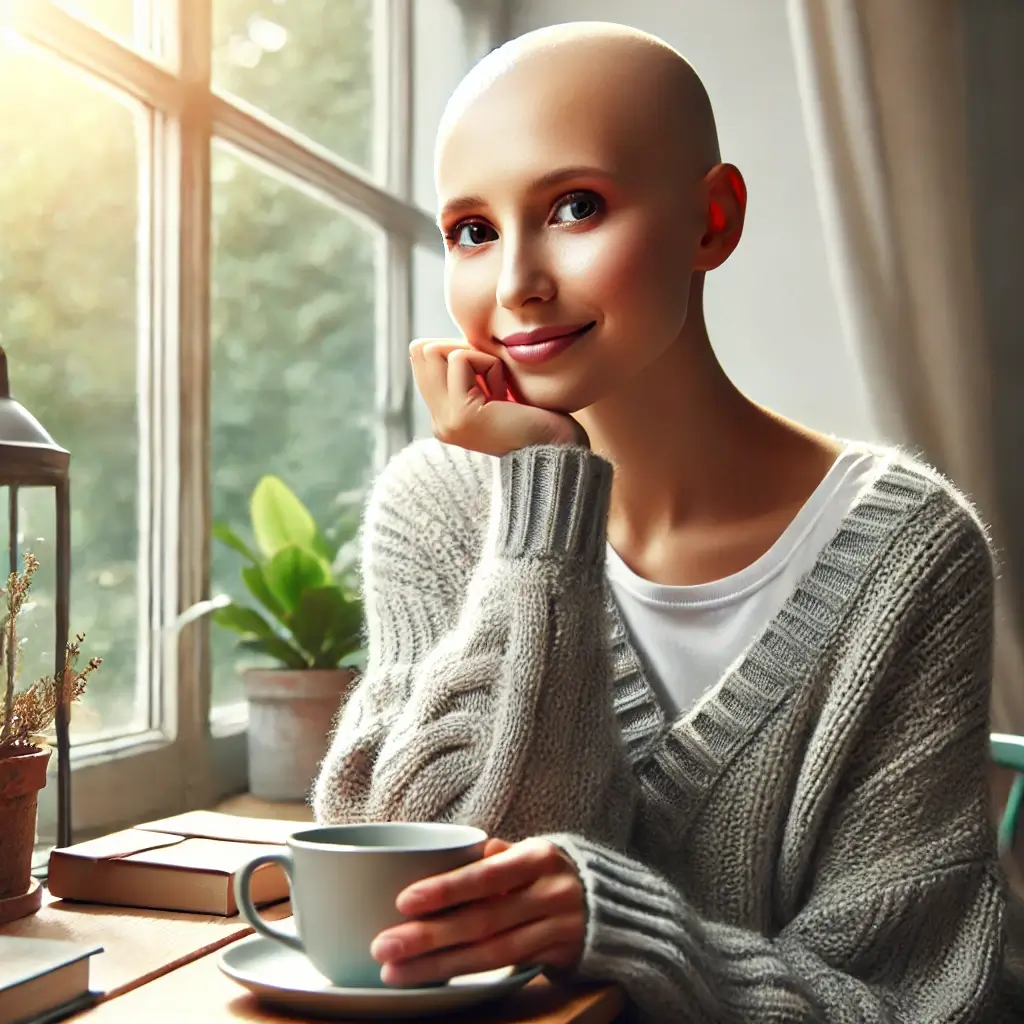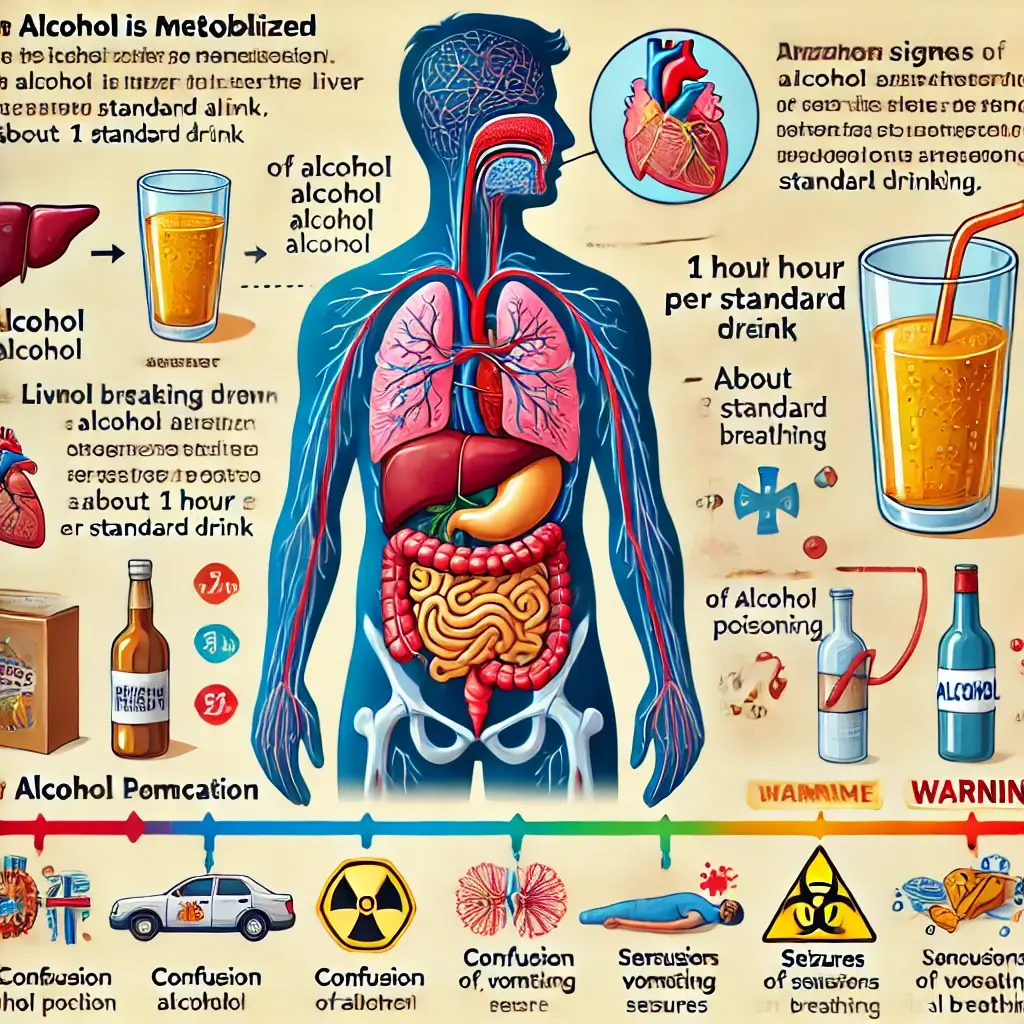5 Things They Never Tell You About Life After Cancer
Life after cancer is a process that no one really prepares you for. While beating cancer is a triumph to be celebrated, the struggles that follow are seldom talked about. You might think that once the treatments are completed, life will go back to normal, but the truth is often far from it. There are physical, emotional, social, and even financial battles that survivors battle, and most of these issues are never talked about. What we're going to share with you in this article are 5 things they never tell you about life after cancer, providing insight, encouragement, and guidance for those who travel this journey.
1. The Fear of Recurrence Never Truly Goes Away
One of the biggest and least talked about consequences of life after cancer is the recurrence anxiety. Although you've finished treatments and received a clean bill of health, the fear that cancer will recur haunts you. Each minor pain, discomfort, or unusual symptom can create anxiety and fear that the illness has recurred.
How to Manage the Fear of Recurrence
Regular check-ups: Checking in regularly with your doctor can catch any issues early and reassure you that all is well.
Therapy and counselling: Talking to a mental health professional can calm your anxiety and teach you coping skills.
Healthy lifestyle habits: Eating well, exercising, and staying away from stress can give you confidence to remain cancer-free.
In spite of these coping mechanisms, the fact remains that fear never goes away. This is one of the 5 things they never tell you about life after cancer that most survivors struggle with.
2. Your Body Will Never Be the Same
Another brutal reality of life after cancer is that your body forever changes. Chemotherapy, radiation, and surgeries put permanent marks on the body that can affect everyday life. While some recover their pre-cancer energy and strength, a lot of survivors continue to have health problems.
Routine Physical Changes After Cancer
Chronic fatigue: Survivors often feel tired even after resting sufficiently.
Nerve and pain damage: Some treatments can lead to neuropathy, which results in tingling or numbness in the extremities.
Weight gain or loss: Treatments for cancer can result in excessive weight loss or gain.
Compromised immune system: Your immune system won't be as strong after treatment.
Doctors may get you cancer-free, but sometimes they fail to prepare you for these chronic health issues. Hence, this one of the 5 things no one ever mentions about life post-cancer many survivors pick up the hard way.
3. Relationships and Social Life Take a Drastic Hit
Your friendships, family, and even your spouse might be different after cancer. Some individuals will expect you to recover quickly, while others will pull away because they don't know how to treat you anymore.
How Life After Cancer Impacts Relationships
Friends might vanish: Some individuals have a hard time coping with serious diseases and might drift away.
Family expectations: Your family might be expecting you to get back to normal, unaware of the difficulties you continue to experience.
Romantic relationships: Intimacy can be compromised because of physical and emotional changes, causing stress in relationships.
Most survivors end up feeling alone, which is one of the 5 things they never tell you about life after cancer. Re-establishing a social life and establishing boundaries with loved ones can make this transition easier.
4. The Financial Struggles Are Overwhelming
The cost of cancer doesn't stop when treatment is finished. Survivors often have to deal with continuing medical expenses, drug costs, and even difficulty going back to work. If you had to take time off for a long period or lost your job while undergoing treatment, it may be tough to get back on your feet financially.
The Real Cost of Life After Cancer
Medical debt: Despite insurance, cancer treatments can still produce huge bills for patients.
Job difficulties: Certain survivors have difficulty finding employment because of health restrictions or holes in their job history.
Ongoing medical costs: Follow-up appointments, medication, and specialist visits quickly add up.
This cost is one of the 5 things they never tell you about life after cancer but is essential for survivors to budget for.
5. Mental Health Struggles Are Real and Long-Lasting
Mental wellness is another area of life post-cancer that gets overlooked. Most survivors face post-traumatic stress disorder (PTSD), depression, and anxiety. The psychological strain of surviving a life-threatening disease doesn't end once the cancer is removed.
Dealing with Mental Health Issues
Seek professional counseling: Therapy can offer great coping mechanisms.
Join support groups: Talking to others who have been through the same thing can be very healing.
Practice self-care: Meditation, journaling, and exercise can enhance mental health.
Mental health issues are among the 5 things they never tell you about life after cancer, but solving them is crucial for transitioning in a healthy manner.
Final Thoughts
Cancer survival is a triumph, but living after cancer is full of challenges that many are not ready for. Fear of recurrence, long-term physical effects, relationship changes, financial hardships, and mental health struggles are all realities survivors face. Although these challenges are difficult, being aware of them can make survivors feel less isolated and more equipped to deal with what lies ahead.
By sharing these 5 things they never tell you about life after cancer, we hope to reveal the truth about survivorship and promote honest discussion about life after treatment. As a survivor, caregiver, or loved one, understanding what to anticipate can make all the difference in this experience.
Here are 20 Q&A, 20 facts, and 5 myths related to the article "5 Things They Never Tell You About Life After Cancer."
20 Q&A About Life After Cancer
1. What is one of the largest concerns cancer survivors have following treatment?
One of the most prevalent concerns among cancer survivors is the fear of recurrence.
2. Does life resume normal after cancer treatment?
Not really. Most survivors have long-term physical, emotional, and financial adjustments.
3. How does cancer impact an individual's mental health following treatment?
Most survivors have PTSD, anxiety, and depression because of the trauma of going through cancer treatment.
4. Why do others keep their distance from cancer survivors?
Some are clueless when it comes to serious illnesses, while others figure that the survivor has recovered fully.
5. What are some of the physical side effects that persist after cancer treatment?
Fatigue, pain, weight change, nerve damage, and an immune system suppressed are typical.
6. Is fear of recurrence rational?
Yes, since cancer can recur, but a healthy lifestyle and frequent check-ups can control this fear.
7. What are some financial challenges for cancer survivors?
Debt due to medical bills, loss of employment, and continued healthcare expenses may result in financial difficulties.
8. Can a cancer survivor easily resume work?
Not necessarily. Most face issues regarding energy levels, employment gaps, or discrimination in the workplace.
9. What can cancer survivors do about mental health challenges?
Therapy, support groups, and self-care may be beneficial.
10. What lifestyle adjustments should a survivor make?
Healthy eating, exercise, stress reduction, and staying away from unhealthy habits such as smoking can be beneficial to stay healthy.
11. Can long-term side effects be experienced by cancer survivors years later?
Yes, certain effects like neuropathy, fatigue, and cognitive impairment may persist for many years.
12. Do survivors require periodic medical check-ups even if they are cancer-free?
Yes, follow-ups aid in checking for recurrence or other medical problems.
13. How does cancer influence a person's immune system in the long term?
Certain treatments suppress the immune system, which makes survivors prone to infections.
14. What is survivor's guilt?
It's when a survivor feels guilty for surviving when others with cancer did not.
15. Are cancer survivors prone to developing other health problems?
Yes, others can develop secondary cancers, heart disease, or long-term organ damage as a result of treatment.
16. How do survivors recover from relationships after cancer?
Open communication, boundary setting, and support can facilitate recovery from relationships.
17. Why do some survivors feel alone after treatment?
Because others around them may not comprehend the long-term consequences of cancer.
18. Can a cancer survivor have children?
It varies with the type of cancer and treatment. Some treatments impact fertility.
19. How is financial stress managed after cancer?
Financial assistance, budgeting, and speaking with financial planners can assist.
20. What do cancer survivors need to know most?
That they are not alone, and there is help available to guide them through life after cancer.
20 Facts About Life After Cancer
More than two-thirds of cancer survivors have long-term side effects from treatment.
PTSD is prevalent in cancer survivors because of the trauma of treatment.
Most survivors experience "chemo brain," impairing memory and focus.
Financial difficulties are one of the greatest challenges after cancer.
Chronic fatigue is more common in survivors than in the general population.
The immune system may take years to recover completely after chemotherapy.
Most survivors feel pushed to "move on" from cancer when they are not yet done fighting.
Exercise can decrease the risk of recurrence as well as enhance mental health.
Some of the survivors end up developing lymphedema, which is a painful swelling due to ruptured lymph nodes.
Sleep disorders are prevalent in cancer survivors as a result of treatment side effects and stress.
Certain cancer therapies cause premature menopause or sterility.
The survivors are prone to osteoporosis as a result of therapy such as chemotherapy and steroids.
Treatment for cancer causes heart and lung injury that seems years down the line.
A lot of survivors have a difference in sense of taste and smell.
A good support system is necessary for mental and emotional healing.
Meditation and yoga have been found to alleviate stress in cancer survivors.
Some foods, such as processed food, cause a heightened risk of cancer recurrence.
Survivors tend to require a change in lifestyle in order to stay healthy in the long term.
Some cancer survivors develop survivor's guilt due to which they find it hard to rejoice over their recovery.
Medical check-ups are necessary even when declared cancer-free.
5 Myths About Life After Cancer
Myth 1: Once you're cancer-free, life goes back to normal immediately.
Truth: Life after cancer is a long adjustment process, with many physical and emotional challenges.
Myth 2: If the cancer is gone, you don't need medical check-ups anymore.
Truth: Survivors must continue regular screenings to monitor their health.
Myth 3: Cancer survivors can't have children.
Truth: Some can, depending on their treatment and individual circumstances.
Myth 4: Once you survived cancer, you can't get it again.
Truth: Cancer does come back, and survivors also get secondary cancers.
Myth 5: Survivors of cancer are always happy and thankful.
Truth: Most battle with depression, anxiety, and survivor's guilt despite recovery.
These Q&A, facts, and myths provide deeper insights into 5 things they never tell you about life after cancer and help break misconceptions surrounding survivorship.




